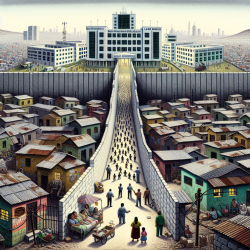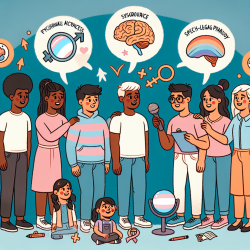Introduction
In the pursuit of Universal Health Coverage (UHC), the role of social exclusion often remains in the shadows, yet it plays a pivotal role in shaping health outcomes. The research article "Social exclusion and universal health coverage: health care rights and citizen-led accountability in Guatemala and Peru" sheds light on how marginalized communities in these countries face systemic barriers in accessing health services. This blog aims to guide practitioners in leveraging these insights to enhance their practice and encourage further research.
The Power of Citizen-Led Accountability
Citizen-led accountability initiatives in Guatemala and Peru have uncovered significant deficiencies in the health systems serving socially excluded populations. These grassroots efforts have demonstrated that while financial resources and social rights have expanded, marginalized groups still face invisible barriers to accessing quality health care. The findings highlight the importance of integrating inclusive accountability mechanisms within public institutions to foster equitable progress towards UHC.
Key Findings and Implications for Practitioners
- Systemic Barriers: The research identifies systemic issues such as underfunding, mismanagement, and discrimination that hinder access to health services for Indigenous populations. Practitioners should advocate for policy changes that address these systemic barriers.
- Empowering Communities: The success of citizen-led initiatives underscores the power of community engagement. Practitioners can facilitate training programs to empower communities to monitor and advocate for their health rights.
- Data-Driven Advocacy: Utilizing data collected from citizen-led monitoring can provide compelling evidence to drive policy changes. Practitioners should leverage data to highlight disparities and advocate for equitable health policies.
Encouraging Further Research
The case studies from Guatemala and Peru serve as a call to action for researchers to explore the intersection of social exclusion and health coverage further. By examining the structural mechanisms that perpetuate inequality, researchers can develop strategies to dismantle these barriers and promote health equity.
Conclusion
Efforts to achieve UHC must go beyond financial investment and address the deeper challenges of democratizing health systems. Practitioners and researchers play a crucial role in advocating for inclusive accountability mechanisms that empower marginalized communities and promote equitable health outcomes. To delve deeper into the original research, please follow this link: Social exclusion and universal health coverage: health care rights and citizen-led accountability in Guatemala and Peru.










